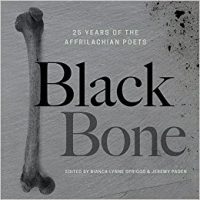January 26, 2018
Edited by David Sanders
Specimen Days
1778—Ugo Foscolo, Italian poet (Ultime lettere di Jacopo Ortis), is born.
1781—Ludwig Joachim "Achim" von Arnim, German poet (Des Knaben Wunderhorn), is born.
1849—Thomas Lovell Beddoes, English poet (Death's Jest-Book), suicide at 45.
1953—Martinus Nijhoff, Dutch poet/interpreter/linguist, dies at 58.
1968—Yvor Winters, American poet (b. 1900), dies.
1991—Johnny van Doorn, Dutch writer/poet, dies at 46.
1992—Okke Jager, Dutch theologist/writer/poet, dies at 63.

Hawk’s Eyes
As a gray hawk’s eyes
Turn here and away
So my course turns
Where I walk each day.
—Yvor Winters
“As a gray hawk’s eyes / Turn here and away / So my course turns / Where I walk each day.” – Yvor Winters
World Poetry
The Poet Cordovan Pablo García Baena Died at 96 Years

Founder of the magazine Canticle and of the literary group of the same name that established a link with the generation of the 27 after the Civil war
Pablo García Baena had lived so many literary resurrections that, at 96 years, he seemed immortal. Yesterday, however, he died in Córdoba, his hometown, because of a respiratory complication. For two years he had begun to say goodbye to world because his eyesight was no longer what it had been, a blow to someone who found in beauty reason for his life.
This Group Seeks to Take Urdu Poetry Beyond Boundaries

Amid a cacophony of cluttering powerlooms, a motley bunch of doctors, lawyers and powerloom owners gather almost every fortnight in Bhiwandi to discuss and savour the cadence and nuances of Urdu poetry. Those gathered are members of “Bazm-E-Yaaraan-E-Adab” (gathering of literature lovers), a group of 30 men who gather to discuss and analyse the works of legendary poets, such as Mirza Ghalib and Mir Tawqi Mir as well as contemporary Urdu poets.
Iran: Arrest Followed by an Enforced Disappearance of Poet
PEN International condemns the enforced disappearance of poet Mohammad Bamm who was arrested by members of the Iranian security forces on 31 December 2017 while on his way home in the city of Abadan, Iran. Bamm was arrested along with his friend who was released after a short time. To date, Bamm is still being detained incommunicado with no access to his lawyer or his family. Bamm was previously detained in 2017 on politically-motivated charges which are “propaganda against the Islamic Republic of Iran” and “blasphemy”.
Pablo García Baena he died in Córdoba, his hometown, at the age of 96.
Recent Reviews
Book Review: the TS Eliot Poetry Prize Shortlist
The TS Eliot poetry prize is now 25 years old, but the man himself might look askance at 2018’s mediocre shortlist
by Jeremy Noel-Tod
If he were starting out today, TS Eliot would not be eligible for the prestigious annual poetry prize that bears his name. According to the rules of entry, “a ‘book’ shall be defined as having at least 48 pages” — which would disqualify Prufrock and Other Observations (1917), The Waste Land (1922) and Ash Wednesday (1930). Eliot’s spectacular originality would also make him a rank outsider for his own trophy.
Stephanie Burt’s Advice from the Lights
by Ailbhe Darcy

In his book Infidel Poetics (2009), Daniel Tiffany praises the obscurity of lyric. He begins with the insight that no matter how straightforward a lyric poem might be, the reader tends to experience it as obscure. He traces a genealogy for the English-language poem in the Anglo-Saxon riddle, taking seriously the possibility that “lyric poetry first emerged in English as the enigmatic voice of certain highly wrought objects.” In this account, lyric poems begin as the inscriptions on weapons, crosses, bells, jewelry, sundials, and chess pieces. Separated from their artifacts, inscriptions become riddles. Stephen/Stephanie Burt, in her critical book The Poem is You (2016), remarks that a task “still best fitted to poetry” is to “let us imagine someone else’s interior life.”
The Violence of Lost Time: Planetary Noise: Selected Poetry of Erin Mouré
by Barbara Berman
It goes without saying that the daily life one leads will affect the way one’s poetry will sound. When a writer has exceptionally acute feelings entwined with, and always engaging with, the infinite varieties of the way language affects heart and mind, the effects are devastating and profoundly necessary. These effects are everywhere in the poetry and translation of Erin Mouré, a prize-winning Canadian writer whose work includes eighteen volumes of her own poetry and sixteen volumes of poetry in translation, and who holds honorary doctorates from Brandon University in Canada, and from the University of Vigo in Spain.
Review: The Transcendent Field
by Dai George
These two excellent new books – epic, resourceful, visual, incensed – explode the parameters of modern poetry. Combining prose, lyric, fragments, found text, screenshots, slogans and illustration, they attest to an increasingly vital hybrid poetics evolving on the other side of the Atlantic, in defiance of Trump’s zombie white supremacist politics and the subtler exclusions of the liberal establishment. Their overt subject is black musicality, and the parasitic fascination that white culture has with the talented, entertaining, alien other in its midst.
Stephen/Stephanie Burt remarks that the task “still best fitted to poetry” is to “let us imagine someone else’s interior life.”
Broadsides
Joan Murray’s Enduring Poetry of the Senses
She died at twenty-four, but the thrills of her insights have sparked a new generation of readers.
by Dan Chiasson
The poems of Joan Murray, who died in 1942, at the age of twenty-four, have been lost and recovered many times over. First, Murray’s manuscript was pried, from her mother, by W. H. Auden, who wanted to publish it as his inaugural pick as judge of the Yale Series of Younger Poets, in 1947. The resulting book, “Poems,” received a few respectful notices but was soon forgotten. In 2003, John Ashbery, a cheerful prospector in overlooked minor poetries, published a short appreciation of Murray, “one of the poets of the forties whom I most enjoy,” whose “abrupt transitions and changes of scene” bring readers to “the brink of a momentous discovery.” The poems were discoveries in and of themselves.
‘Back into the socket’: William Fuller’s Playtime
by Dominic Hale

Born in 1953, William Fuller is an American poet who works as chief fiduciary officer of The Northern Trust Company in Chicago. He has been described by the British poet J.H. Prynne as the ‘secrecy officer of American poetry’, and his authorship doesn’t seem quite as well-known as I think it ought to be on this side of the Atlantic.
William Fuller is an American poet who has been described as the “secrecy officer of American poetry.”
Drafts & Fragments
Coach House Books Puts Poetry ‘on hiatus’
“The way people read is changing,” explains Coach House editorial director Alana Wilcox of Tuesday’s sudden announcement.
by Deborah Dundas
Coach House Books has placed its prestigious poetry program “on hiatus” and will not be accepting any poetry submissions until further notice. The announcement was made on the company’s blog on Tuesday. “Poetry is changing, and the way people read is changing,” Alana Wilcox, editorial director of Coach House, told the Star. “We live in a Twitter world now — what does that mean for poetry?”
Coach House Books has placed its prestigious poetry program “on hiatus” and will not be accepting any poetry submissions until further notice.
Poetry In the News
Ron Padgett Wins Frost Medal

The Poetry Society of America is honored to announce that Ron Padgett is the 2018 recipient of the organization's highest award, the Frost Medal, presented annually for distinguished lifetime achievement in poetry. Previous winners of this award include Wallace Stevens, Marianne Moore, Gwendolyn Brooks, Allen Ginsberg, Adrienne Rich, Barbara Guest, Lucille Clifton, Michael S. Harper, Marilyn Nelson, and Susan Howe.
Jenny Joseph Obituary

The poet Jenny Joseph, who has died aged 85, might well have wondered a little ruefully whether WH Auden was altogether correct in maintaining that “poetry makes nothing happen”. Her famous Warning (“When I am an old woman I shall wear purple/ With a red hat which doesn’t go, and doesn’t suit me … ”) was written when she was 28, and after its appearance in an early book went almost unnoticed for 25 years. Then, because of its contention that growing old should be a defiant process, it gradually began to be slotted into serious selections of writing about old age, and for its merit ended up in one or two grander places, such as Philip Larkin’s Oxford Book of Twentieth Century English Verse in 1973.
The Poetry Society of America is honored to announce that Ron Padgett is the 2018 recipient of the organization’s highest award, the Frost Medal.
New Books
Wild Is the Wind: Poems by Carl Phillips
[Hardcover] Farrar, Straus and Giroux, 80 pp., $23.00

In Wild Is the Wind, Carl Phillips reflects on love as depicted in the jazz standard for which the book is named―love at once restless, reckless, and yet desired for its potential to bring stability. In the process, he pitches estrangement against communion, examines the past as history versus the past as memory, and reflects on the past’s capacity both to teach and to mislead us―also to make us hesitate in the face of love, given the loss and damage that are, often enough, love’s fallout.
Take Me With You by Andrea Gibson
[Paperback] Plume, 208 pp., $15.00
Andrea Gibson explores themes of love, gender, politics, sexuality, family, and forgiveness with stunning imagery and a fierce willingness to delve into the exploration of what it means to heal and to be different in this strange age. Take Me With You, illustrated throughout with evocative line drawings by Sarah J. Coleman, is small enough to fit in your bag, with messages that are big enough to wake even the sleepiest heart. Divided into three sections (love, the world, and becoming) of one liners, couplets, greatest hits phrases, and longer form poems, it has something for everyone, and will be placed in stockings, lockers, and the hands of anyone who could use its wisdom.
Black Bone: 25 Years of the Affrilachian Poets edited by Bianca Lynne Spriggs and Jeremy Paden
[Paperback] University Press of Kentucky, 160 pp., $24.95

The Appalachian region stretches from Mississippi to New York, encompassing rural areas as well as cities from Birmingham to Pittsburgh. Though Appalachia's people are as diverse as its terrain, few other regions in America are as burdened with stereotypes. Author Frank X Walker coined the term "Affrilachia" to give identity and voice to people of African descent from this region and to highlight Appalachia's multicultural identity. This act inspired a group of gifted artists, the Affrilachian Poets, to begin working together and using their writing to defy persistent stereotypes of Appalachia as a racially and culturally homogenized region. After years of growth, honors, and accomplishments, the group is acknowledging its silver anniversary with Black Bone.
Hoard by Fleur Adcock
[Paperback] Bloodaxe Books, 64 pp., $22.00
Brings together poems Fleur Adcock had to keep under wraps because they didn't suit the themes of her last two collections, The Land Ballot and Glass Wings. Here are reflections on the tools of her trade (handwriting, typewriters), snatches of autobiography (a brief, ill-considered second marriage followed by her migration from New Zealand to England in 1963), and poems on trees, wildlife and everyday objects. The most recent poems in the book recall Adcock's visits around the North Island of New Zealand in 2015, affirming her renewed although not uncritical affection for the country of her birth.
Cape Verdean Blues by Shauna Barbosa
[Paperback] University of Pittsburgh Press, 96 pp., $15.95

The speaker in Cape Verdean Blues is an oracle walking down the street. Shauna Barbosa interrogates encounters and the weight of their space. Grounded in bodily experience and the phenomenology of femininity, this collection provides a sense of Cape Verdean identity. It uniquely captures the essence of “Sodade,” as it refers to the Cape Verdean American experience, and also the nostalgia and self-reflection one navigates through relationships lived, lost, and imagined. And its layers of unusual imagery and sound hold the reader in their grip.
“Black Bone: 25 Years of the Affrilachian Poets” gives voice to Appalachians of African descent.
Correspondences
“The Question in the Mirror”: A Conversation with David St. John
by Michael Juliani

I interviewed the poet David St. John, my friend of several years, shortly after the death of writer Sam Shepard. Shepard’s death influenced my reading of St. John’s latest book, The Last Troubadour: New and Selected Poems (HarperCollins), not only for the similarities between the two writers’ origins as Californians, but also for their shared obsession with the fleeting beauty of the American West. I started to recognize how this trait of St. John’s work, attuned to the piercing intimacies of sex, love, and landscape, perpetuates his very elegant poems with an elemental American roughness I find irresistible. For a poet who is so often praised for his voluptuous intricacy, St. John has for me produced a rare fusion of refinement and grit, while also revealing what makes California so particularly Western and so particularly American. Our interview took place in his office in the English department at the University of Southern California, where he serves as Chair, and where he has taught creative writing for 30 years.
Kaveh Akbar Is Poetry's Biggest Cheerleader
by Jeevika Verma

Ever eavesdropped on two poets having a conversation at a coffee shop? Iranian-American poet Kaveh Akbar has created an online space that lets you do that without leaving your bed. Akbar runs DiveDapper, which focuses on interviews with major voices in contemporary poetry. It's packed with profiles of writers like Morgan Parker, Ocean Vuong, Wendy Xu, and Max Ritvo — to name just a few. Every other Monday, he posts a new interview transcript.
A Happy Affliction: A Conversation with Paul Muldoon
by Jonathan Kendall
Less than one year since leaving his decade-long post as poetry editor at The New Yorker, Paul Muldoon is as deeply embedded in the literary world as he seems to have ever been: not only as a beloved — albeit sometimes elusive — poet, but also as a professor at Princeton University, where he thoroughly enjoys learning about poetry as much as his students do.
Ever eavesdropped on two poets at a coffee shop? Kaveh Akbar has created an online space that lets you do that without leaving your bed.
Envoi: Editor’s Notes
On Yvor Winters
The poet and critic Yvor Winters is often considered something of a contrarian. Perhaps he was. But he knew what he believed and followed his own star. Here is what the contemporary poet and critic David Yezzi says, in part, about Winters:
"For Winters, poetry—and, in its concision, lyric, especially—is the highest linguistic expression because, in addition to the denotative aspects of words emphasized in other forms of writing, poetry makes particular use of the connotative ones, the two together composing the “total content” of language. For Winters, the purpose of poetry is to describe experience as precisely as possible. Connotation in poetry, then, acquires a “moral” dimension—to preserve clarity, connotation or “feeling” must be carefully controlled :
'The artistic process is one of moral evaluation of human experience, by means of a technique which renders possible an evaluation more precise than any other. The poet tries to understand his experience in rational terms, to state his understanding, and simultaneously to state, by means of the feelings we attach to words, the kind and degree of emotion that should properly be motivated by this understanding.'
Though Winters used the term “morality” in various ways, this passage illustrates his reigning principle for how a poem should convey human experience. Here, the term “morality” refers to a fairly technical process of choosing the appropriate words for evaluating a given subject. Romantic poetry often employed associative logic, fuzzy revery, and words emotionally in excess of their subjects. The “moral” Wintersian poet controls emotion, releasing it through restraint. He aims to match the argument of the poem to the proper degree of emotion."
Yezzi's essay on Winters in The New Criterion is here and is worth reading in full.
“The artistic process is one which renders a moral evaluation of human experience more precise than any other process.” – David Yezzi